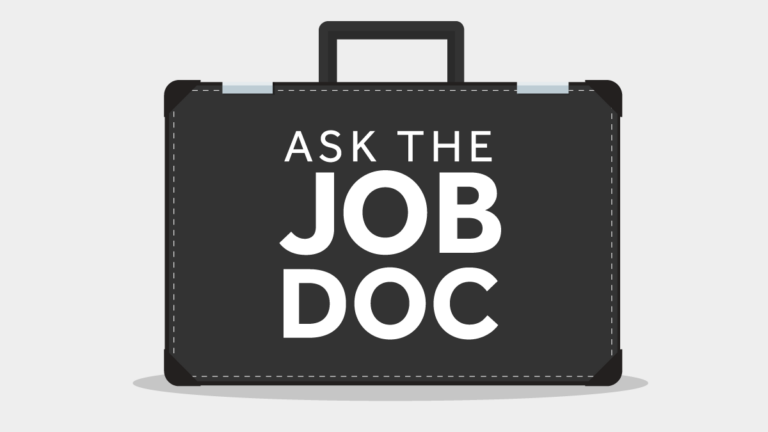Jobs
How can I prioritize my health and wellbeing when having to work grueling hours in a high-pressured and demanding job?

A. Work-life balance has had a lot of press lately with individuals making claims that people don’t want to work, that some generations aren’t motivated by their job responsibilities, and believe they should be promoted more quickly than deserved. And yet there are other industries who recognize that their profitability is driven by the work and hours that individuals put into their job responsibilities. Managers, HR people, and organizational leaders need to know the status of all their employees, and that is not just billable hours, closed deals, or deliverables.
That story was shocking and tragic. Hopefully C-suite leaders believe that and not just employees or HR. If your employees haven’t taken vacation in a year, is that a warning sign? If your employees are expressing exhaustion and a lack of emotional stability, is that a warning sign? If your employees are billing exceptional numbers of hours, is that something to celebrate or to be concerned about? When companies put corporate profitability ahead of employees’ health and well-being, they are on their way to exceptionally high levels of turnover, levels of burnout that cause illness, and in a most recently documented case in the media, the death of an employee.
This is one extreme that we hope never happens again. But if it’s happened here, we know it’s likely happening elsewhere. While there may be extenuating circumstances to this story, everyone knows that there are times when employees are overly stressed and working too many hours. This might not be a regular occurrence and it may only be for a short period of time. But how long is too long? There are demonstrated industries where physical and mental exhaustion can lead to serious errors, whether it’s in healthcare, manufacturing, the legal field, etc.
The question that needs to be addressed is, who’s responsible for this? Is the employee responsible for managing their own health and well-being? Is the manager responsible for acknowledging that too much work is not a good sign? Every organization will tell you they have health benefits and that the health and wellbeing of their employees is important to them. But do these organizations encourage their employees to take advantage of these services? Do individual managers say, “I need you to go home. I need you to take two days off.” Or do they say, “After this deal is closed, we’ll all be able to celebrate”?
The goal of a company is not to put themselves in a position to be sued surrounding the death of an employee for whatever work-related circumstances may have led to that kind of a situation. The goal of an employer should be to take care of their most valuable asset, their employees. No manufacturing plant would run their equipment down to the point of collapse, and no organization should be doing the same, whether it is forced overtime in healthcare or extreme billable hours in the legal field. Every organization needs to review what its expectations of people are to ensure that the health and wellness of employees is prioritized.
If it’s the leader of the team who is modeling these overworking tendencies, someone else at the organization needs to step in and protect their employees who may be pushed to the same brink. Most people are familiar with the industries that are known to “put people through their paces, go through the things that I went through.” Yet no one thinks this is healthy or a good idea and no one has stepped in to put an end to this. Are individuals being unreasonable when working more than 70 hours a week becomes the norm? Or have companies overstepped their bounds? If companies want to remain union free, they need to look at what is expected of their employees. Profitability is not a “like to have,” that is understood. And so is maintaining the way to get there.
Within organizations, more senior people need to be advocates for change and speak up. Partners in law firms or physicians who have been through this may not advocate for change. They may assume that if they went through it, that other people can go through it. You can try to negotiate for more flexible working arrangements that allow you to work remotely a couple of days a week so that you eliminate commute time. Your HR department should survey where people live so that managers are aware of what someone’s commute looks like.
When organizations are demanding that people come back to the office, leadership needs to be aware of the impact of what they are asking their employees to do. If not, you can’t build a strong workplace culture. You frequently hear “be your own advocate” or “speak up.” Yet, in a time when people fear losing their jobs, they may stay silent. You could absolutely speak with your manager and ask for a more balanced workload and how that will make you a more effective employee. You are well within your rights to speak up and address how long work hours negatively impact your health and wellbeing. And getting a few more people to do the same would make it even more impactful.
In the wake of the banker’s death, there will hopefully be more attention and initiatives on helping employees manage their work/life balance in all industries.
Boston.com







:max_bytes(150000):strip_icc()/roundup-writereditor-loved-deals-tout-f5de51f85de145b2b1eb99cdb7b6cb84.jpg)


